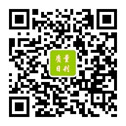囧研究:创意丰富的人更容易骗人?
Creative thinkers 'more likely to cheat' as they can dream up more imaginative defences
创意丰富的人更容易骗人 因为他们能想出各种借口为自己辩解
Creative thinkers are more likely to cheat as they can come up with elaborate explanations to justify their actions, researchers claim.
最近有研究发现,创造力无限的思想者更容易骗人,因为他们能想出各种解释为自己的行为辩护。
The psychologists tested a range of students and found that those with vivid imaginations cheated in order to get a bigger financial prize.
心理学家测试了一批学生,发现其中有丰富想象力的更容易为了更丰厚的奖金报酬而骗人或作弊。
The students then used their creative thinking skills to come up with different reasons for their actions and ultimately assuage their guilt.
这些学生用他们的创意思维能力想出各种借口为自己的行动辩护,最后减轻了自己的内疚感。
'Greater creativity helps individuals solve difficult tasks across many domains,' study researcher Francesca Gino of Harvard University said in a statement, according to LiveScience. 'But creative sparks may lead individuals to take unethical routes when searching for solutions to problems and tasks.'
哈佛大学研究人员Francesca Gino表示:“创造力的确有助于人们解决许多领域里面临的困难,但创意的火花可能导致某些人在解决问题完成任务时采取不道德的途径。”
Scientists asked 97 students from southeastern U.S. universities to complete a series of recognised psychological tests.
科学家研究了美国东南部大学的97名学生,要求他们完成一系列广受认可的心理学测试。
Participants looked at drawings with dots on two sides of a diagonal line and were then asked figure out which side had more dots. In half of the 200 tests, there was a virtually identical number of dots on either side.
参与者需要看着一条对角线两侧有圆点的图案,然后指出哪一侧的圆点更多。在一共200个测试中,有一半其实两侧的圆点数量相同。
The students were then given an incentive of 5 cents for choosing the right side of the line but only 0.5 cents for picking the left side of diagram.
研究者事先告诉学生奖励的方法:选线右侧可以得到5美分,选左侧只能拿到0.5美分。
The more creative people chose the more lucrative right side even though there was no reason for them to believe it had more dots.
创意性更丰富的人即使在明知没有理由确定右边的圆点多的情况下,也会选择奖励更为丰厚的右侧。
The researchers claim that this is proof that creative individuals construct imaginative justifications in their mind while cheating, and in particular, when cheating for money.
研究人员表示,这可以证明创意丰富的人在欺骗行为时会在心中构建各种充满想象力的借口,尤其涉及到金钱时。
A second experiment saw students answer general-knowledge questions by circling their answers on test paper.
第二个实验要求学生们回答基础常识问题,答题方式是在试卷上圈出正确的答案。
They were then told to transfer their answers to another piece of paper. However, the researcher then told them that this same test sheet had been accidentally marked with the correct answers.
研究人员告诉学生,需要将答案誊写到标准答题纸上,但是又告诉他们,由于影印用错纸张,答题纸上已隐约可见正确的答案。
Although the students were led to believe there was no way they could get caught cheating, a system was in place to catch those who had.
虽然研究者让学生们误以为在转填答案时作弊不会被抓到,但是其实是有追踪学生作弊情况的暗记系统。
Once again it was the creative types who had taken shortcuts by copying the correct answers. During this experiment students also knew they would be paid more for correct answers, so had more incentive to cheat.
结果再次发现,创造力强的学生会走捷径抄袭正确答案。在测试过程中学生们也了解正确答案越多,酬劳就会越丰厚,所以他们又有了作弊的动机。
'Being able to generate several original justifications for one's own unethical actions thanks to creativity may lead people to feel licensed to cheat,' the authors wrote in the Journal of Personality and Social Psychology.
《人性与社会心理学报》的作者在文中写到:“创造力使得他们能够为自己的不道德行为找到各种借口,可能会导致这些人觉得自己有骗人的特权。”
'The results from the current paper indicate that, in fact, people who are creative or work in environments that promote creative thinking may be the most at risk when they face ethical dilemmas.'
“现在的研究结果表明,创意强或是在有利于发展创意思维的环境中工作的人更容易面临道德的两难境地。”
The study did not identify a link between intelligence and dishonesty. Less intelligent people who lacked creativity were also no more likely to cheat.
研究并没有发现智力和不诚实之间存在关联。智力低、缺乏创意性的人一般都不太会骗人。
创意丰富的人更容易骗人 因为他们能想出各种借口为自己辩解
Creative thinkers are more likely to cheat as they can come up with elaborate explanations to justify their actions, researchers claim.
最近有研究发现,创造力无限的思想者更容易骗人,因为他们能想出各种解释为自己的行为辩护。
The psychologists tested a range of students and found that those with vivid imaginations cheated in order to get a bigger financial prize.
心理学家测试了一批学生,发现其中有丰富想象力的更容易为了更丰厚的奖金报酬而骗人或作弊。
The students then used their creative thinking skills to come up with different reasons for their actions and ultimately assuage their guilt.
这些学生用他们的创意思维能力想出各种借口为自己的行动辩护,最后减轻了自己的内疚感。
'Greater creativity helps individuals solve difficult tasks across many domains,' study researcher Francesca Gino of Harvard University said in a statement, according to LiveScience. 'But creative sparks may lead individuals to take unethical routes when searching for solutions to problems and tasks.'
哈佛大学研究人员Francesca Gino表示:“创造力的确有助于人们解决许多领域里面临的困难,但创意的火花可能导致某些人在解决问题完成任务时采取不道德的途径。”
Scientists asked 97 students from southeastern U.S. universities to complete a series of recognised psychological tests.
科学家研究了美国东南部大学的97名学生,要求他们完成一系列广受认可的心理学测试。
Participants looked at drawings with dots on two sides of a diagonal line and were then asked figure out which side had more dots. In half of the 200 tests, there was a virtually identical number of dots on either side.
参与者需要看着一条对角线两侧有圆点的图案,然后指出哪一侧的圆点更多。在一共200个测试中,有一半其实两侧的圆点数量相同。
The students were then given an incentive of 5 cents for choosing the right side of the line but only 0.5 cents for picking the left side of diagram.
研究者事先告诉学生奖励的方法:选线右侧可以得到5美分,选左侧只能拿到0.5美分。
The more creative people chose the more lucrative right side even though there was no reason for them to believe it had more dots.
创意性更丰富的人即使在明知没有理由确定右边的圆点多的情况下,也会选择奖励更为丰厚的右侧。
The researchers claim that this is proof that creative individuals construct imaginative justifications in their mind while cheating, and in particular, when cheating for money.
研究人员表示,这可以证明创意丰富的人在欺骗行为时会在心中构建各种充满想象力的借口,尤其涉及到金钱时。
A second experiment saw students answer general-knowledge questions by circling their answers on test paper.
第二个实验要求学生们回答基础常识问题,答题方式是在试卷上圈出正确的答案。
They were then told to transfer their answers to another piece of paper. However, the researcher then told them that this same test sheet had been accidentally marked with the correct answers.
研究人员告诉学生,需要将答案誊写到标准答题纸上,但是又告诉他们,由于影印用错纸张,答题纸上已隐约可见正确的答案。
Although the students were led to believe there was no way they could get caught cheating, a system was in place to catch those who had.
虽然研究者让学生们误以为在转填答案时作弊不会被抓到,但是其实是有追踪学生作弊情况的暗记系统。
Once again it was the creative types who had taken shortcuts by copying the correct answers. During this experiment students also knew they would be paid more for correct answers, so had more incentive to cheat.
结果再次发现,创造力强的学生会走捷径抄袭正确答案。在测试过程中学生们也了解正确答案越多,酬劳就会越丰厚,所以他们又有了作弊的动机。
'Being able to generate several original justifications for one's own unethical actions thanks to creativity may lead people to feel licensed to cheat,' the authors wrote in the Journal of Personality and Social Psychology.
《人性与社会心理学报》的作者在文中写到:“创造力使得他们能够为自己的不道德行为找到各种借口,可能会导致这些人觉得自己有骗人的特权。”
'The results from the current paper indicate that, in fact, people who are creative or work in environments that promote creative thinking may be the most at risk when they face ethical dilemmas.'
“现在的研究结果表明,创意强或是在有利于发展创意思维的环境中工作的人更容易面临道德的两难境地。”
The study did not identify a link between intelligence and dishonesty. Less intelligent people who lacked creativity were also no more likely to cheat.
研究并没有发现智力和不诚实之间存在关联。智力低、缺乏创意性的人一般都不太会骗人。
没有找到相关结果
已邀请:





0 个回复